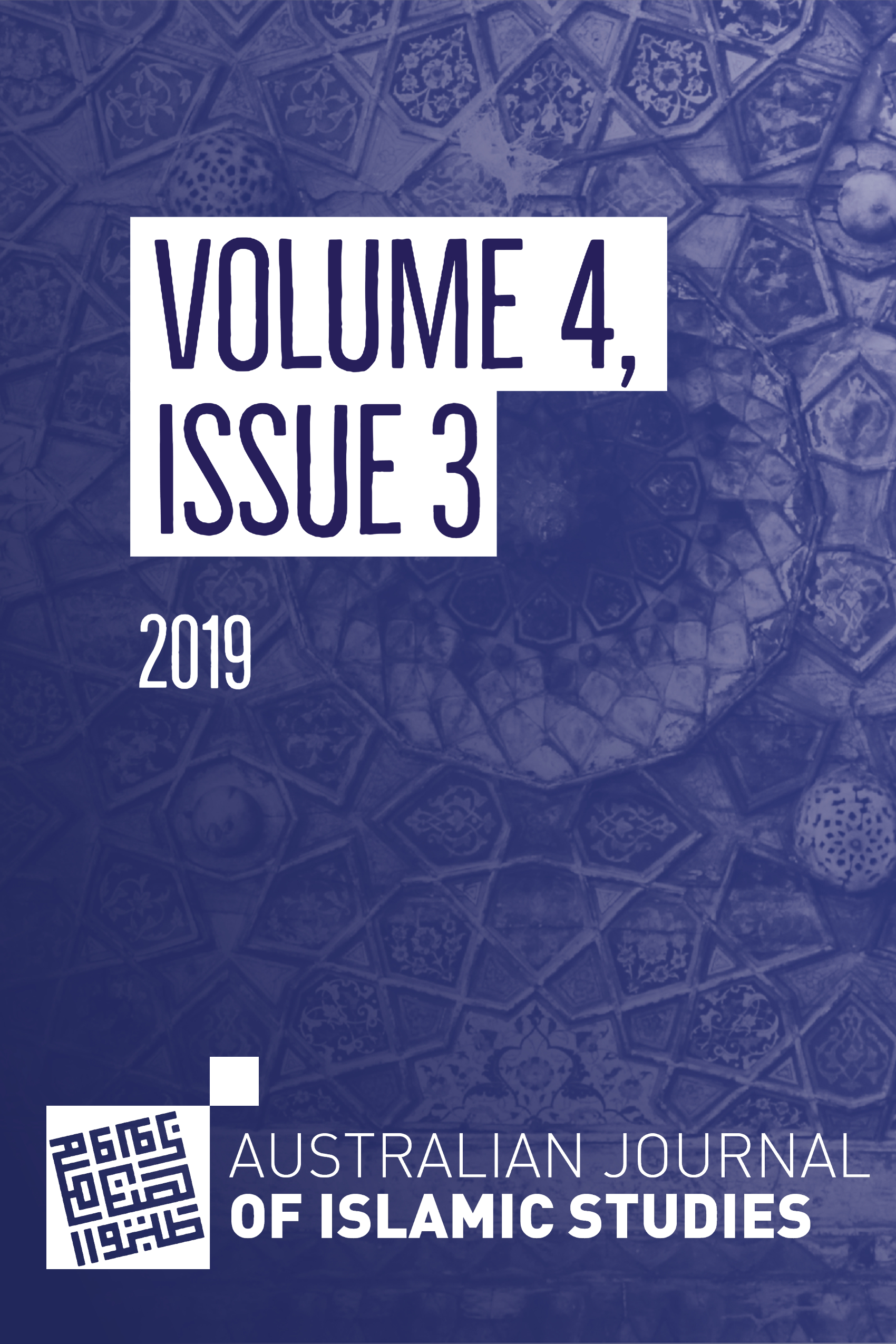Inner Peace in the Life of Said Nursi

Abstract
The best means to understanding inner peace is through the lived experience of individuals, where they are able to share the hardships and calamities they have lived through, and the processes they have followed in order to cope with those challenges. Said Nursi, a twentieth century scholar, regularly talks about the challenges he faced in his life through his writings, the Risale-i Nur (Treatise of Light). At the same time, Nursi puts great emphasis on how strong faith in God is the source of inner peace since it provides a perspective which helps one to better understand those challenges. How does one reconcile the two; hardships and inner peace? This article focuses on three types of calamities faced by Nursi; exiles, imprisonments and the death of his spiritual son, after which it analyses Nursi’s thought process on how he responded to those calamities as a result of his faith. The article then focuses on Nursi’s approach where everything should be viewed as other indicative. In summary, it sheds light on Nursi’s understanding of inner peace and how he sees faith as the ultimate source of that inner peace.
Keywords
Said Nursi, Islamic spirituality, Risale-i Nur, Calamities, Inner Peace
References
Abu-Rabiʻ, Ibrahim M. “How to Read Said Nursi’s Risale-i Nur,” in Islam at the Crossroads, edited by Ibrahim M. Abu-Rabiʻ, 61-91. Albany: State University of New York Press, 2003.
Balci, Mustafa. Bediüzzaman Said Nursi “Wonder of the Age.” New Jersey: Tughra Books, 2011.
Canan, Ibrahim. “The Chief Questions Facing the Islamic World and their Solutions According to Bediuzzaman.” In The Reconstruction of Islamic Thought in the Twentieth Century and Bediüzzaman Said Nursi, 77-93. Istanbul: Sözler, 1993.
Canan, Ibrahim. “Bediuzzaman Said Nursi’s View of Civilisation.” In Panel I, 47-76. Istanbul: Sözler, 1993
Çelik, Hüseyin. “Bediuzzaman and the Ideal of Islamic Unity.” In The Reconstruction of Islamic Thought in the Twentieth Century and Bediüzzaman Said Nursi, 247-261. Istanbul: Sözler, 1993.
Gülen, Fethullah. Emerald Hills of the Heart: Key Concepts in the Practice of Sufism, vol 2. Lanham: Tughra Books, 2007.
Haddad, Yvonne Y. “Ghurbah as Paradigm for Muslim Life: A Risale-i Nur Worldview.” In Islam at the Crossroads, edited by Ibrahim M. Abu-Rabiʻ, 237-253. Albany: State University of New York Press, 2003.
Jamat-Everett, Ayize. “Prison is a Hell for the Unbeliever.” In Islam at the Crossroads, edited by Ibrahim M. Abu-Rabiʻ, 115-128. Albany: State University of New York Press, 2003.
Kuşpınar, Bilal. “The Fusion of Faith and Knowledge in Finding Solutions for Problems: Nursi’s Illuminative Path.” In Knowledge, Faith, Morality and the Future of Humanity, 45-56. Istanbul: Istanbul Ofset, 2000.
Markham, Ian S. Engaging with Bediuzzaman Said Nursi A Model of Interfaith Dialogue. Farnham: Ashgate Pub, 2009.
Markham, Ian S., and Suendam Birinci Pirim, An Introduction to Said Nursi Life, Thought and Writings. Farnham: Ashgate, 2011.
Mursel, Safa. “Opening Address.” In Panel I, 14-22. Istanbul: Sözler, 1993.
Nursi, Said. The Damascus Sermon. Translated by Şükran Vahide. Istanbul: Sözler, 1989.
Nursi, Said, Tarihçe-i Hayatı [Historical Biography]. Istanbul: Sözler, 1991.
Nursi, Said. The Words. Translated by Şükran Vahide. Istanbul: Sözler, 1993.
Nursi, Said. The Flashes Collection. Translated by Şükran Vahide. Istanbul: Sözler, 1995.
Nursi, Said. The Rays. Translated by Şükran Vahide. Istanbul: Sözler, 1998.
Nursi, Said. Epitomes of Light: Mathnawi Al-Nuriya: The Essentials of the Risale-i Nur. Translated by Hüseyin Akarsu. Izmir: Kaynak, 1999.
Nursi, Said. The Letters. Translated by Şükran Vahide. Istanbul: Sözler, 2001.
Oke, Mim Kemal. “Said Nursi and Britain’s Psychological Warfare Against Ottoman Turkey, 1909-1922.” In Panel I, 30-43. Istanbul: Sözler, 1993.
Ormsby, Eric L. Theodicy in Islamic Thought: The Dispute Over Al-Ghazālī’s “Best of All Possible Worlds.” Princeton, N.J.: Princeton University Press, 1984.
Rippin, Andrew. The Islamic World. London: Routledge, 2008.
Sarıtoprak, Zeki. “Islam and Politics in the Light of Said Nursi’s Writings.” Islam and Christian-Muslim Relations 19, no. 1 (2008): 113-126.
Şahiner, Necmeddin. Said Nursi ve Nurculuk Hakkında Aydınlar Konusuyor [The Enlightened Ones are Talking about Said Nursi and Nurculuk]. Istanbul: Yeni Asya Yayınları, 1979.
Schulze, Reinhard. A Modern History of the Islamic World. Translated by Azizeh Azodi. London: I.B.Taurus, 2002.
Turner, Colin. “Renewal in Islam and Bediuzzaman.” In The Reconstruction of Islamic Thought in the Twentieth Century and Bediüzzaman Said Nursi, 156-162. Istanbul: Sözler, 1993.
Turner, Colin. The Qur’an Revealed: A Critical Analysis of Said Nursi’s Epistles of Light. Berlin: Gerlach, 2013.
Vahide, Şükran. Bediüzzaman Said Nursi: The Author of the Risale-i Nur. Cağaloğlu, Istanbul: Sözler Publications, 1992.
Vahide, Şükran. “The Life and Time of Bediuzzaman Said Nursi.” The Muslim World LXXXIX (July-October 1999): 208-244.
Vahide, Şükran. Islam in Modern Turkey: An Intellectual Biography of Bediüzzaman Said Nursi. Albany: State University of New York Press, 2005.
Vahide, Şükran. Islam in Modern Turkey: An Intellectual Biography of Bediüzzaman Said Nursi. Albany: State University of New York Press, 2005.
Vahide, Şükran. “A Survey of the Main Spiritual Themes of the Risale-i Nur.” In Spiritual Dimension of Bediuzzaman’s Risale-i Nur, edited by Ibrahim M. Abu-Rabiʻ, 1-22. Albany: State University of New York Press, 2008.
Yavuz, M. Hakan. Islamic Political Identity in Turkey. Oxford and New York: Oxford University Press, 2003.